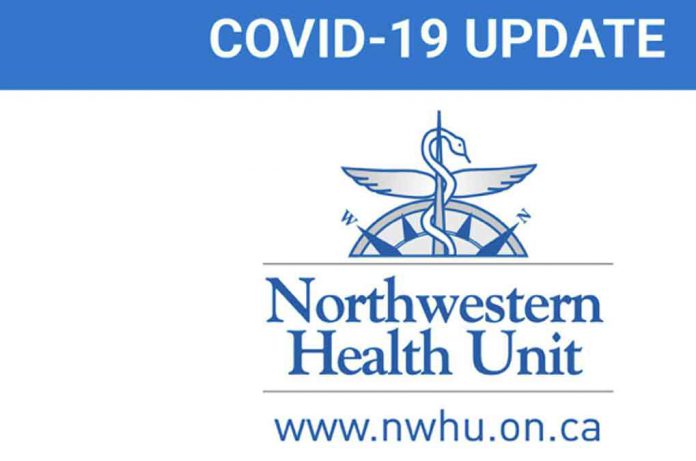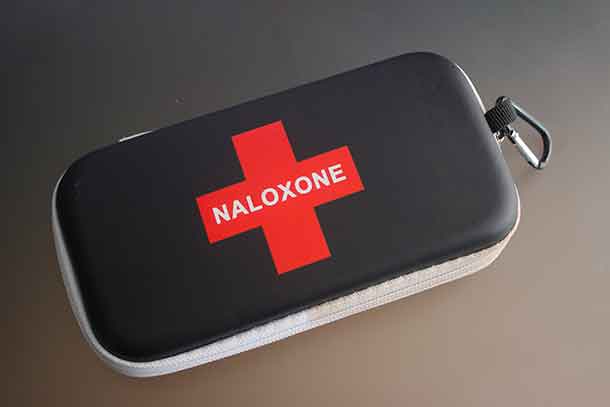KENORA – This year has been challenging because of COVID-19 – for parents, for small business owners, for essential workers, for everyone. We’ve dealt with a lot, but we have also shown how adaptable, resilient, and effective we can be when we work together for the greater good. Thank you for continuing to practise personal preventive measures. Our region is doing a good job of stopping the spread of COVID-19, and your actions are a big part of our success.
The fight against COVID-19 is not over. As we learn more about the virus and how to reduce its impact, public health and our communities will be faced with new challenges and tasks. In this time of unknowns, I want to reassure you of some promises you can count on from Northwestern Health Unit (NWHU).
Northwestern Health Unit processes are consistent with the Personal Health Information Protection Act (PHIPA) and we cannot release information to the public that may identify individuals. Guidance from the Information and Privacy Commissioner of Ontario and a privacy lawyer determined that cases in our area must be announced using four regions rather than by municipality. This practice is similar to many other small health units in Ontario. Some agencies that release case numbers may not fall under the requirements of the PHIPA legislation.
Public safety is our top priority. We are committed in sharing information with the public that affects their health and safety. In most cases, there is no benefit to releasing location and other risk information because the person with COVID-19 self-isolated or had minimal contact with others while infectious. How do we know? When we learn about a new case, we contact that person and make sure they are self-isolating. We then connect with every person they have been in contact with while infectious and require them to self-isolate as well. This is a proven way to reduce the spread of viruses and protect the public.
I can assure you that NWHU will tell the public if and when there is a situation where knowing more details about a case will help protect public safety. For example, if there is a situation where many people had a significant risk of exposure, we will publicly identify the location and times of potential exposure.
In addition, like we did recently with the Kenora region, if COVID-19 case numbers are increasing significantly and suggest a higher risk or community transmission, we will identify that area at a smaller geographic level.
Privacy is important. Privacy is a right of each individual. We have heard from people who have been diagnosed with COVID-19 who have been ostracized and felt unsafe in their own community. If a person knows that they might be identified as having COVID-19, they may choose not to get tested, making it more difficult to control the spread of the disease. Releasing unnecessary details about cases may actually harm public safety if people choose not to gettested out of fear of being identified.
I want to remind all residents to be COVID-kind during this pandemic, have empathy and show support to those who have been affected. People who have been diagnosed with COVID-19 have protected others by getting tested and self-isolating to prevent the spread of the virus.
Our prevention advice is evidence-based. It is vital to assume that COVID-19 is in your community and take the appropriate precautions at all times. This message is not meant to induce fear, but to promote and encourage safety. COVID-19 could be in your community without us knowing about it. Some people do not show symptoms, so they might never get tested. Those who do get tested may have been infectious before being tested. Waiting to know about a case in your community before practising personal preventive measures is not an effective way to prevent COVID-19; it’s too late by then.
Although information about the location of a case will not protect you, there are proven ways to prevent COVID-19. To reduce the chance you will get COVID-19 wash your hands frequently, stay 2 metres from anyone not in your household, and wear a mask in enclosed public spaces.
We will continue to monitor trends. I am encouraged to see that other than in the Kenora area, many communities of NWHU have had no or very few cases. This means that there is a low risk of COVID-19. However, a community with zero cases does not mean that there is zero risk. As always, as we continue to monitor data trends daily, we will inform the general public if we see a trend where there is increasing risk in smaller geographic areas.
I sincerely hope this letter has helped to explain some of our processes and the rationale behind them. What we are doing together to prevent COVID-19 is working so please, as we enter the holiday season, keep safe by staying 2 metres from anyone not in your household, stay home when you’re unwell, and get tested if you have symptoms. I’m proud to live in a region that is known for its close connections and kindness to others. Continue to be caring, compassionate, and have gratitude as 2020 comes to a close. Thank you for trusting us, for listening to our advice, and for protecting our communities with your actions.
Dr. Kit Young Hoon Medical Officer of Health Northwestern Health Unit







